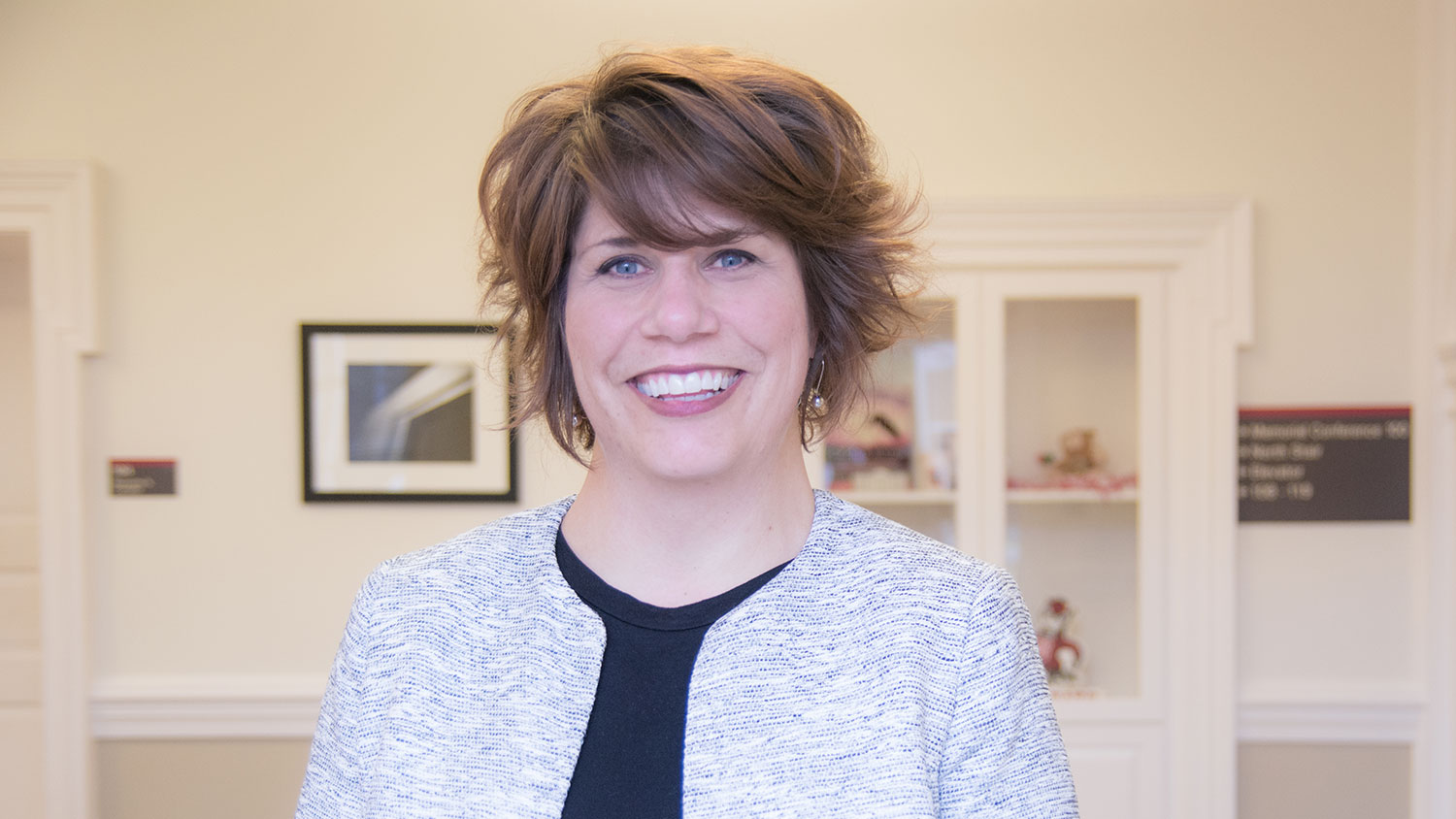New Vice Provost for Institutional Equity and Diversity: Sheri Schwab

Sheri Schwab has been selected as NC State’s vice provost for institutional equity and diversity, effective October 7, 2019, after a nationwide search. Schwab has served as interim vice provost since March 2018.
As vice provost, Schwab is a member of the Chancellor’s Cabinet, leads several university councils, sits on numerous university committees and directs the four operational units of NC State’s Office for Institutional Equity and Diversity (OIED):
- Equal Opportunity and Equity, responsible for equal opportunity and equity compliance, including discrimination and harassment prevention and response, ADA and religious accommodations, Title IX and equal opportunity and affirmative action activities;
- Diversity Engagement, Training and Education, dedicated to diversity and inclusion engagement, training and education initiatives;
- Campus Community Centers, including the African American Cultural Center, GLBT Center, Multicultural Student Affairs and the Women’s Center, serving students, faculty and staff in support, enrichment and scholarship;
- Bias Impact Response Team, which responds to reports of bias on and around campus.
NC State’s unique combined central model of diversity and inclusion, which partners with diversity, equity and inclusion efforts within NC State’s colleges and divisions, creates collaborative perspectives among equity and inclusion professionals in service to the university.
The Digest spoke with Vice Provost Schwab as she began her tenure as NC State’s chief diversity officer.
Tell us a story from your past that you feel was an important precursor to your appointment as chief diversity officer.
As a first-generation college student from a low socioeconomic background, I understand and identify with the struggles that some students may have when entering higher education. That’s why this work is so important to me, and that’s what drew me to the graduate program in higher ed here at NC State. At that time, I also began working in the Office for Equal Opportunity (now part of OIED), eventually serving as assistant vice provost before moving to CALS and leading extension operations. Now that I’ve come back to OIED, it’s a full circle from where I began, and it feels right to continue working toward the same goals that I’ve always believed in, with a greater ability to effect positive change.
Since you’ve been serving in the role of vice provost for 19 months, what are some of the unique aspects of the role that people may not realize?
The position serves such different expectations for different people. On a typical day, I might attend a Chancellor’s Cabinet meeting and a Board of Trustees meeting in the morning, then go to the Free Expression Tunnel, then later that afternoon, attend a student event and work with HR colleagues on a new policy, all while building and leading a team that delivers collaborative and supportive partnerships to everyone else on campus who’s doing this work too. There’s a lot of positive efforts going on related to building an inclusive community here at NC State.
What do you see as the greatest barriers to effective equity and inclusion practices on university campuses today?
As Americans, we are not taught as much history as we should be. New students come to NC State and — according to human development theory, which teaches us that people develop their sense of identity over time — they are thrown into a period when they explore their identities outside of their families, hometown and familiar friend structure. Everyone is at different places in terms of their levels of awareness and exposure, as well as having many competing priorities, and that includes students from first-year to senior, faculty to staff. We all need to learn and read about our history; for example, a good place to start would be for everyone to learn about the social construct of race.
With the recent launch of the Increasing Cultural Competence and Inclusivity Initiative for NC State’s faculty, what kind of impact do you anticipate? What would be the next campus-wide initiative that we might see from OIED?
With this initiative, we are introducing all faculty members to diversity and inclusion awareness on a personal level. Next, we hope to partner with the Office of Faculty Development to bring that competency into the classrooms and labs, because we know that our faculty have so much impact on so many students, and it is critical that they are informed by best practices in inclusion.
We are also partnering with Student Government to work on a similar initiative for students that would occur during the second semester of students’ first year. We are aiming to have students learn about individual levels of identity awareness for themselves and others and then compete an action item as a result of that.
We continue to look for an equivalent for staff. I would add that we already provide many well-attended diversity and equity workshops that are available to all in the Reporter system and through our website.
Every one of can learn more about each other, and as members of this community, should actively seek out opportunities to grow our own knowledge and understanding, our empathy and respect for all.
Elizabeth Snively writes for the Office for Institutional Equity and Diversity.


